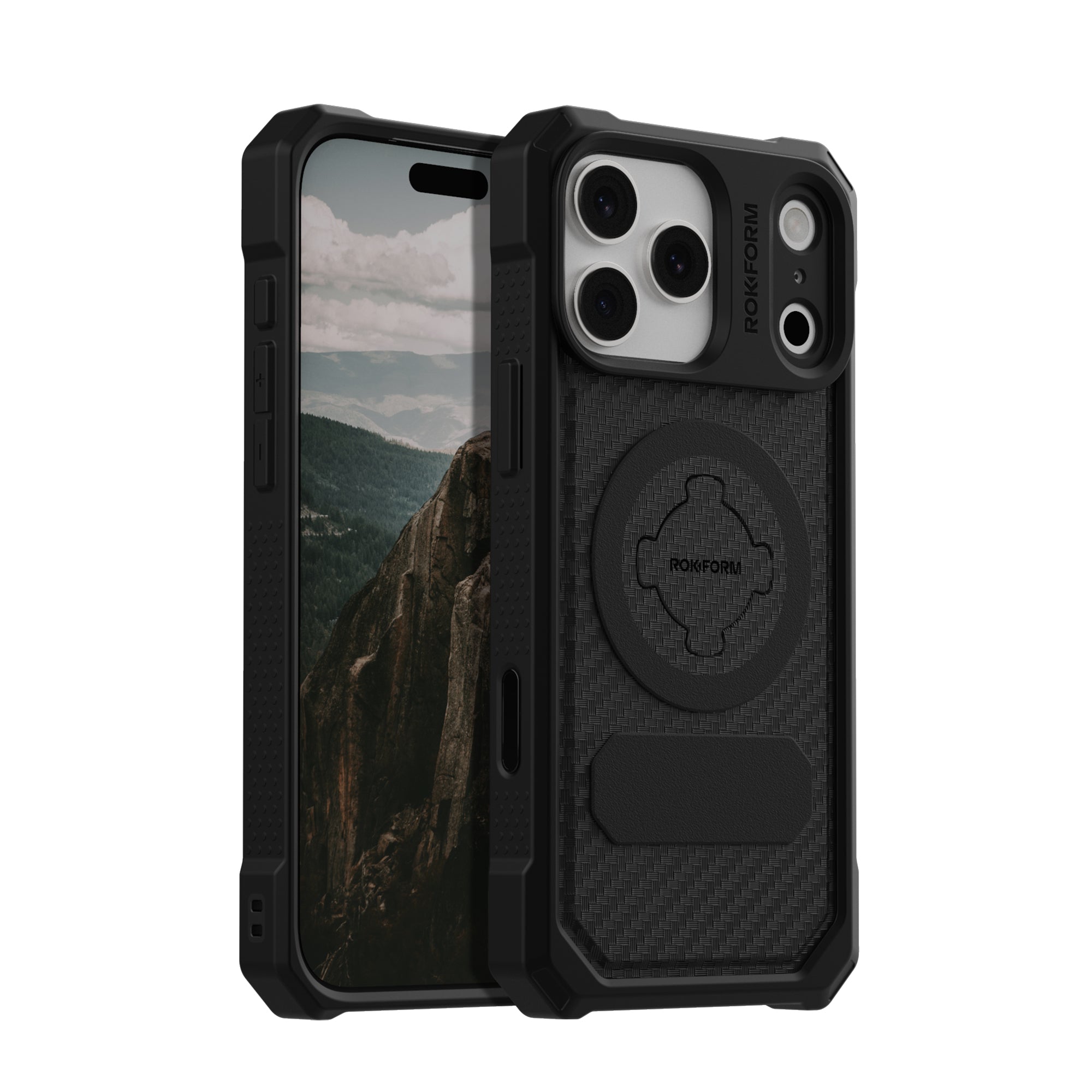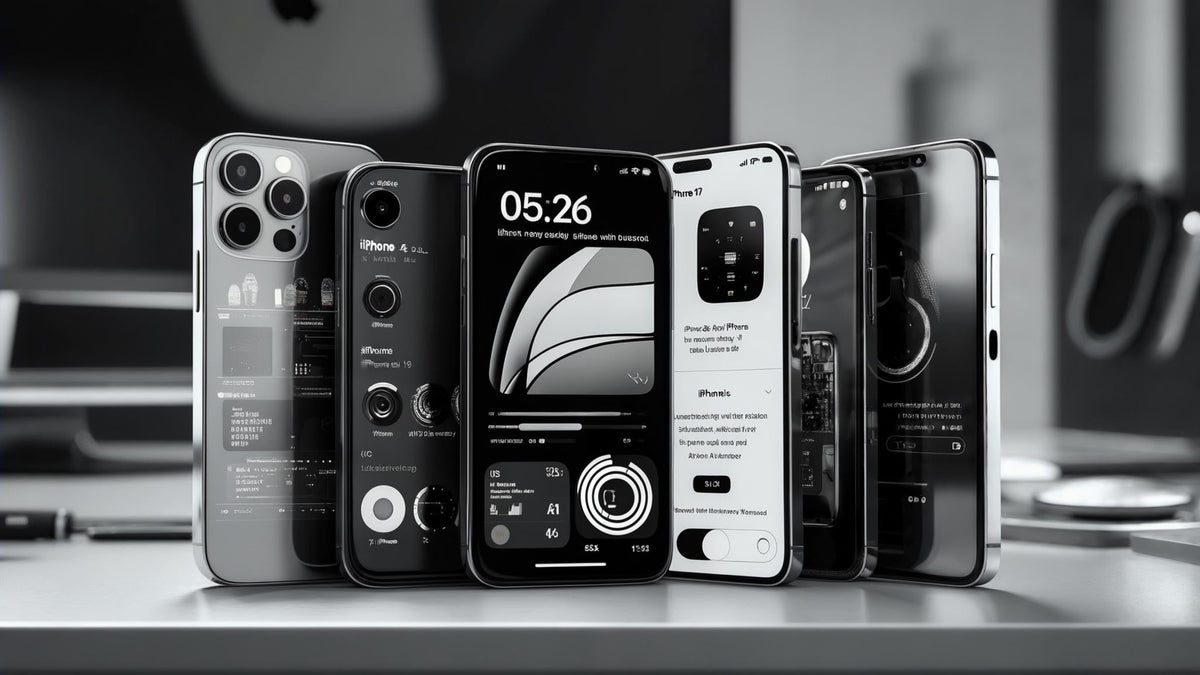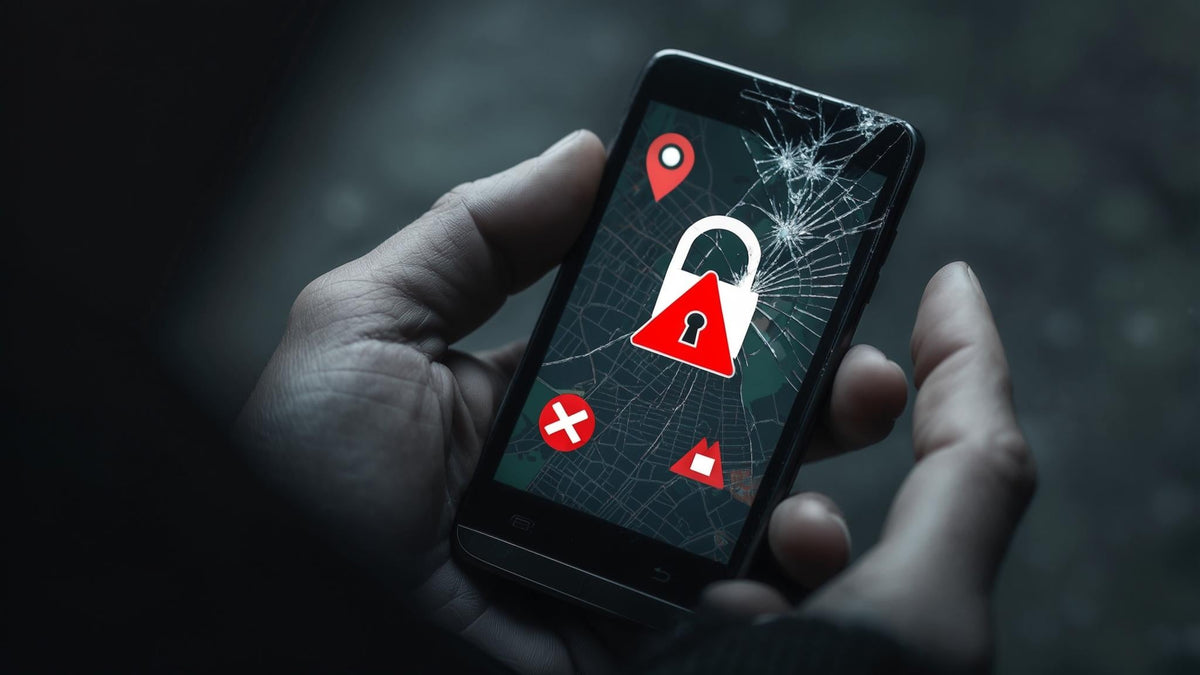I learned the hard way that phones and travel don't always mix. Picture this: you're halfway up a mountain in Peru, your phone slips out of your pocket, and suddenly your GPS, camera, and only way to call for help is bouncing down the rocks below. That expensive lesson taught me everything I know about travel phone protection.
Your phone becomes your lifeline when you're traveling - it's your map, translator, camera, and emergency contact all rolled into one. But travel throws challenges at your device that your daily routine never does. Between pickpockets in tourist hotspots, sketchy WiFi networks, and the inevitable drops on cobblestone streets, your phone faces more risks in a week of travel than it does in months at home.
Research shows that devices are way more likely to be lost or stolen while traveling, and cybercriminals actively target tourists because they know we're carrying expensive gear and might not be familiar with local scam tactics. The good news? A little preparation goes a long way.
What You'll Learn
Keeping Your Phone in One Piece - Cases, screen protectors, and theft prevention that actually work
Staying Safe Online - WiFi security and privacy settings for the road
Power and Connectivity - Never getting stranded without battery or signal
Planning for Different Places - What to know before you go
The Quick Version
Get a case that can survive 6-foot drops and water damage - your phone will thank you
Never connect to public WiFi without a VPN, and turn off auto-connect
Pack multiple power banks and charging cables (they break more than you think)
Research your destination's phone laws before you go - some places are stricter than others
Set up remote wipe and emergency contacts before you leave
Don't flash expensive gear - keep it low-key to avoid becoming a target
Keeping Your Phone in One Piece
Let's start with the basics - making sure your phone survives the physical abuse that comes with travel. I've seen too many people nursing cracked screens because they thought their regular case would handle vacation life.
Cases and Screen Protection That Actually Work
Forget whatever case you use at home. Travel demands serious protection, and "looks good in the office" won't cut it when you're hiking, exploring, or just navigating crowded tourist areas.
You want a case that can handle real drops - look for 6-foot drop protection as your minimum. I don't care what the marketing says about "military-grade" this or that. What matters is whether it'll protect your phone when it falls out of your hands onto concrete (and it will).
What to look for in a travel case:
Raised edges around the screen and camera
Reinforced corners (that's where most impact happens)
Doesn't block wireless charging or interfere with your camera
Easy to grip when your hands are wet or you're wearing gloves
Phil Baker, president of Techsperts, specifically recommends using tempered glass screen protectors, noting that they protect screens from scratches and can absorb impacts if devices are dropped during travel. I always pack a spare screen protector because replacing a cracked protector beats dealing with a shattered screen in a foreign country every time.
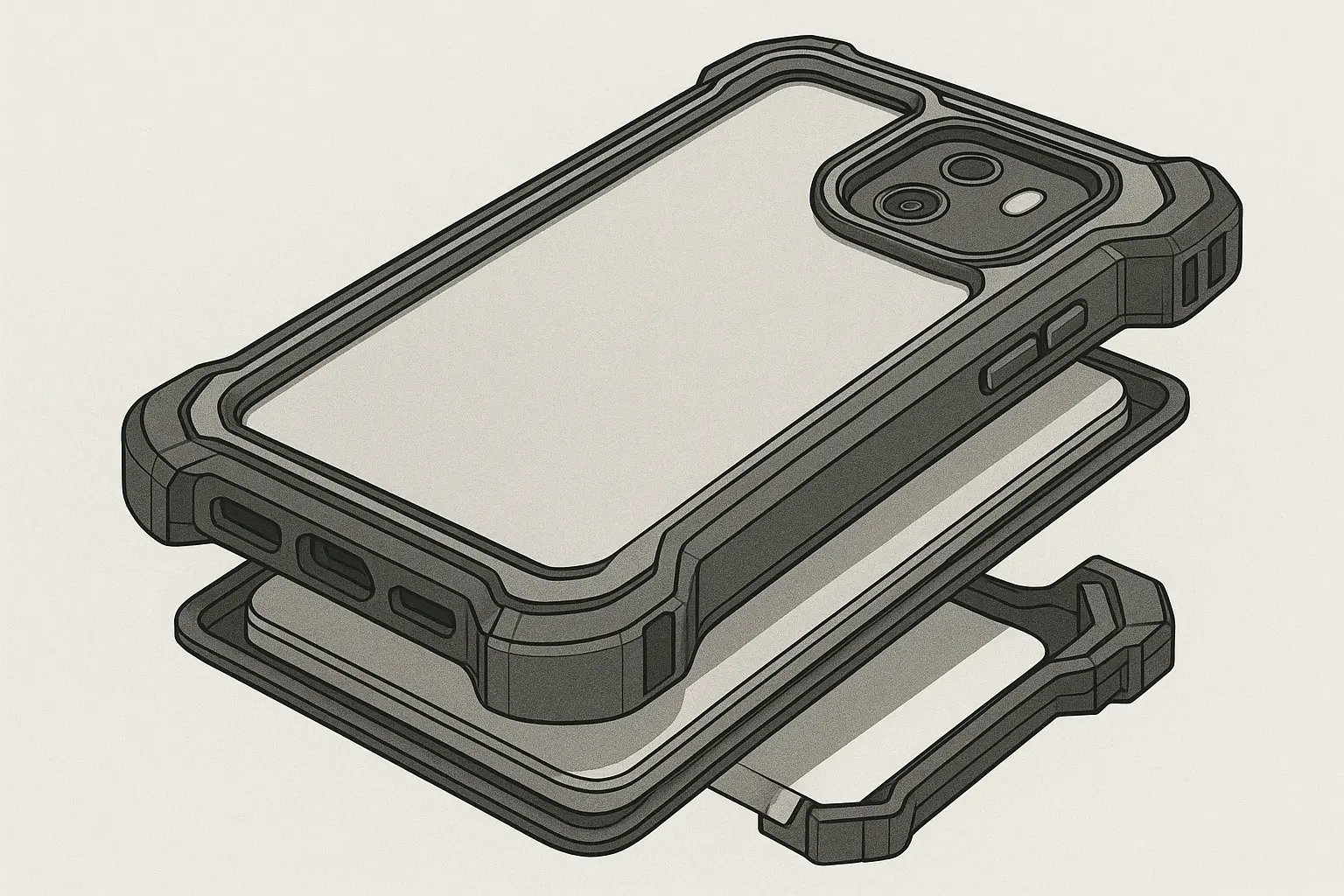
Waterproofing and Weather Protection
Water kills phones faster than almost anything else. Whether it's rain, beach spray, or an accidental dunk in a hotel pool, moisture is your enemy.
Get a case with proper waterproof ratings (IP68 if you want to get technical), but don't rely on it completely. I still use waterproof pouches for beach days or water activities. Temperature extremes matter too - Apple warns against using iPhones in temperatures under 32 degrees because batteries can drain or die completely.
Quick weather protection tips:
Waterproof case for beach/water destinations
Sealed bags for extra protection in sand or dust
Keep your phone warm in cold weather (inside jacket pocket works)
Don't leave it in hot cars or direct sunlight
Avoiding Theft Before It Happens
The best way to deal with phone theft is to not become a target in the first place. This means being smart about how you carry and use your phone.
Simple anti-theft strategies:
Use cases that don't scream "expensive phone here"
Keep it in front pockets or internal compartments
Never leave it visible in parked cars
Consider a lanyard or tether for high-risk activities
My buddy Jake got pickpocketed in Barcelona because he kept flashing his new iPhone around Las Ramblas. Now he carries a beat-up older phone for day trips and keeps his main device locked up at the hotel. Smart move - thieves want easy targets, not complicated heists.
Hotel safes aren't perfect, but they're way better than leaving your phone on the nightstand. For day activities, secure attachment systems like magnetic mounts can be lifesavers. Just practice using them before you're in a stressful situation.
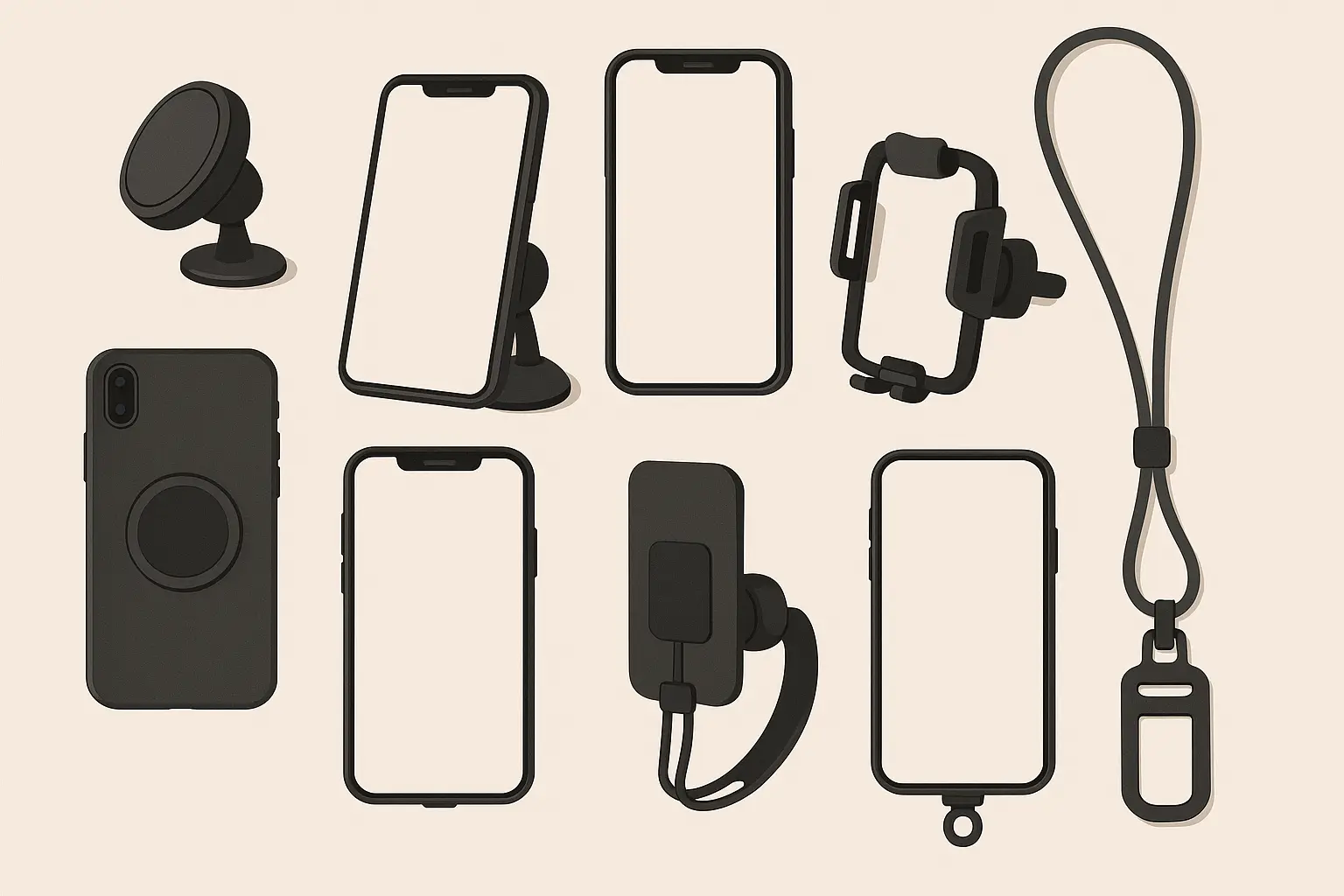
Protection for Different Activities
Beach trips need different protection than mountain hiking. Here's what matters for common travel activities:
Beach/Water Activities:
Waterproof everything (case, bag, the works)
Floating strap so it doesn't sink if dropped
Lens wipes for salt spray cleanup
Hiking/Outdoor Adventures:
Extra grip texture on your case
Backup battery packs (GPS drains power fast)
Offline maps downloaded before you lose signal
City Tourism:
Low-profile case and storage
Backup copies of important documents
Know where your embassy is
Road Trips:
Heat-resistant car mount
Car charger and power inverter
Multiple charging cables (they break)
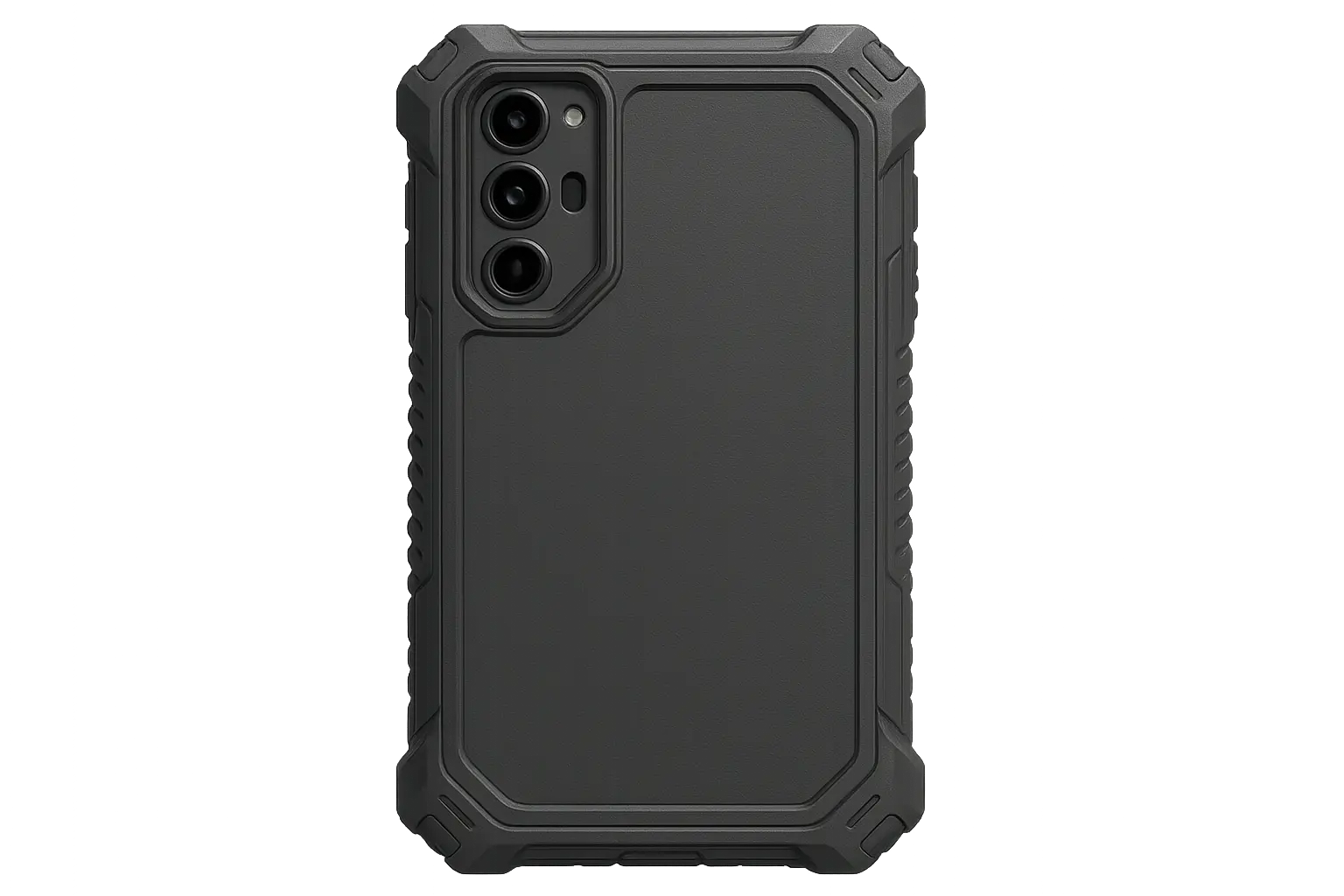
Staying Safe Online
Physical protection is just half the battle. Your phone's digital security matters just as much, especially when you're connecting to foreign networks and using unfamiliar WiFi.
WiFi and Network Security
Public WiFi is a hunting ground for cybercriminals, and tourists are prime targets. Never, ever connect to public networks without proper protection.
WiFi safety rules:
Always use a VPN on public networks
Turn off auto-connect features
Verify network names with staff (scammers create fake networks)
Use "Forget Network" after each session
I learned this lesson in a Bangkok airport when my phone automatically connected to "Free_Airport_WiFi" - which turned out to be a fake network set up to steal data. Now I manually verify every connection and never let my phone join networks automatically.
Recent security analysis shows that travelers increasingly use VPNs for security and to access streaming platforms and gaming sites while abroad. Expert analysis highlights that VPN-friendly platforms offer expanded access with privacy protection, making encrypted connections essential for both security and entertainment during travel.
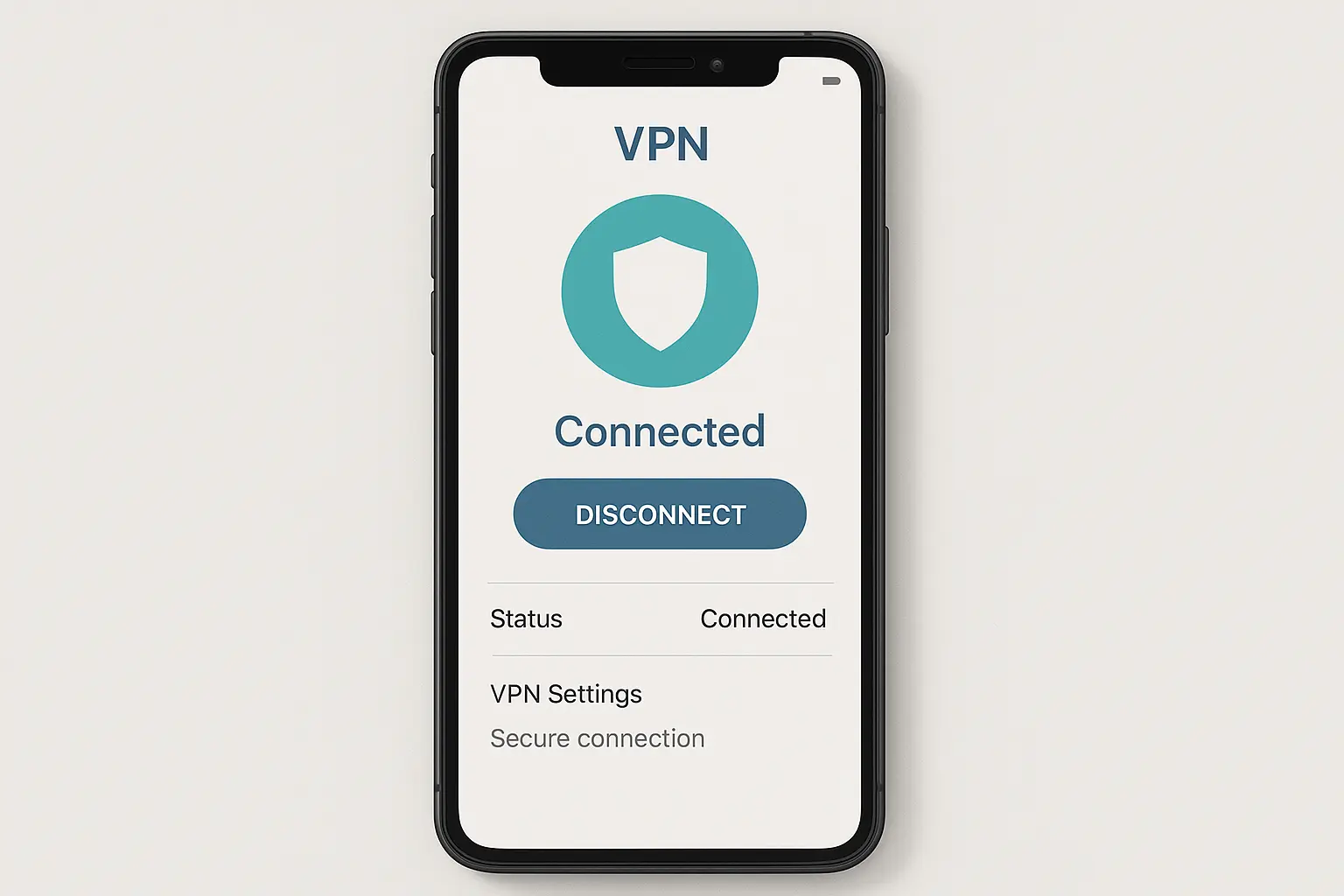
Privacy Settings and Data Protection
Before you leave home, lock down your privacy settings. That weather app doesn't need to know your exact location, and your photo editor definitely doesn't need access to your contacts.
Privacy checklist:
Turn off location sharing for non-essential apps
Disable advertising tracking
Set up automatic screen locks with biometric backup
Turn off voice assistant access from lock screen
My friend Sarah discovered her weather app was broadcasting her exact hotel location to advertisers. Creepy, right? A few minutes adjusting app permissions fixed the problem while still giving her weather updates.
Set up remote wipe capabilities before you travel, and actually test them. You want to know exactly how to erase your device if it gets stolen or confiscated. Back up everything important, but don't carry unnecessary personal files on your traveling device.
Emergency preparation:
Full device backup before departure
Remote wipe setup and testing
Emergency contacts accessible from lock screen
Physical copies of critical information
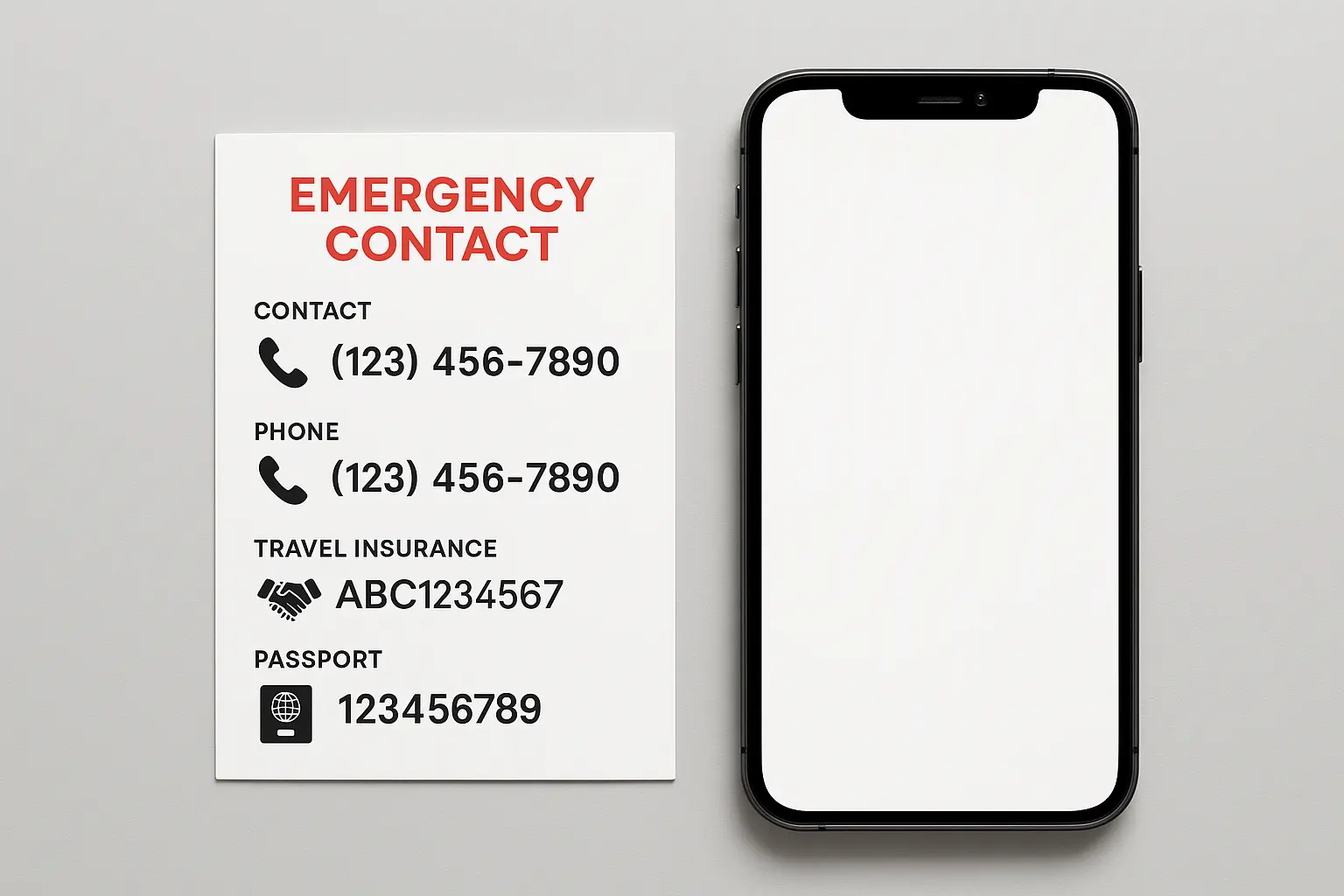
Power and Connectivity
Nothing kills a travel day faster than a dead phone battery. Plan for power management like your trip depends on it - because it does.
Battery and Charging Strategy
Calculate how much power you actually need. Heavy GPS use, photography, and international roaming drain batteries way faster than normal use. I pack power banks with at least twice my estimated daily needs because running out of juice in an unfamiliar place is not fun.
Power essentials:
Multiple power banks (they fail sometimes)
Various charging cables (they break constantly)
Universal adapter with surge protection
Solar charger for extended outdoor activities
Test everything before you leave. Discovering that your power bank doesn't work with your phone while you're standing in a foreign airport is not the time for troubleshooting.
Recent reports highlight the importance of avoiding public USB charging stations due to "juice jacking" risks, where USB ports can transmit data as well as power, posing risks of data theft. Security experts recommend using personal wall adapters plugged directly into outlets and carrying power banks for extended exploration days.
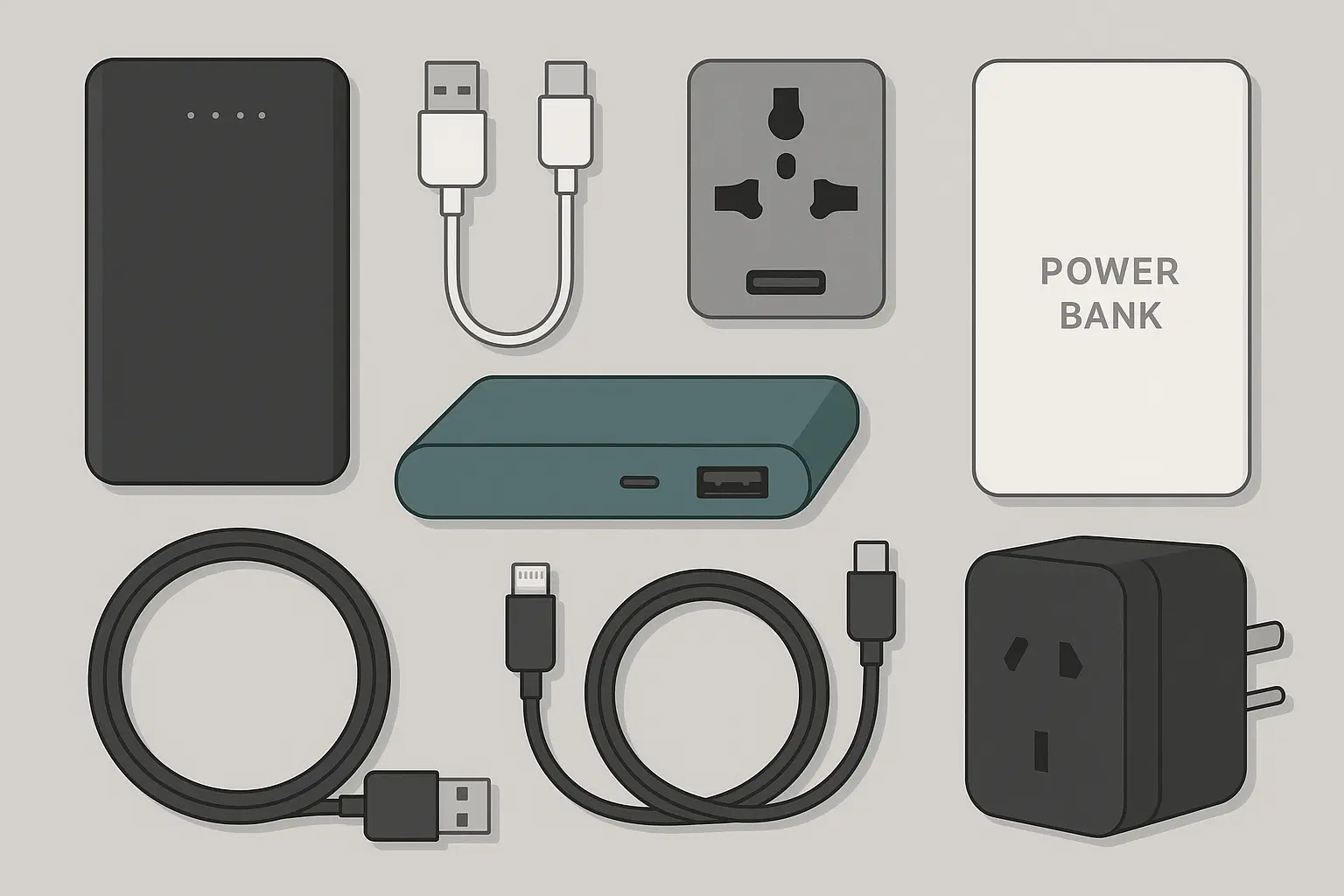
Backup Communication Plans
Your phone might break, get stolen, or simply not work in certain areas. Have backup communication methods ready.
Set up multiple messaging apps before you travel. WhatsApp, Signal, and Telegram work in different regions and have different strengths. Download offline maps and translation tools while you still have good internet.
During a hurricane in the Caribbean, one traveler's cellular network went down completely. They stayed in touch with family through WhatsApp on hotel WiFi, then switched to satellite messaging when even WiFi failed. Having three communication methods set up in advance prevented their family from panicking during the 48-hour blackout.
Communication backup plan:
Multiple messaging apps installed
Offline maps downloaded
Emergency satellite communication for remote areas
Check-in schedule with trusted contacts
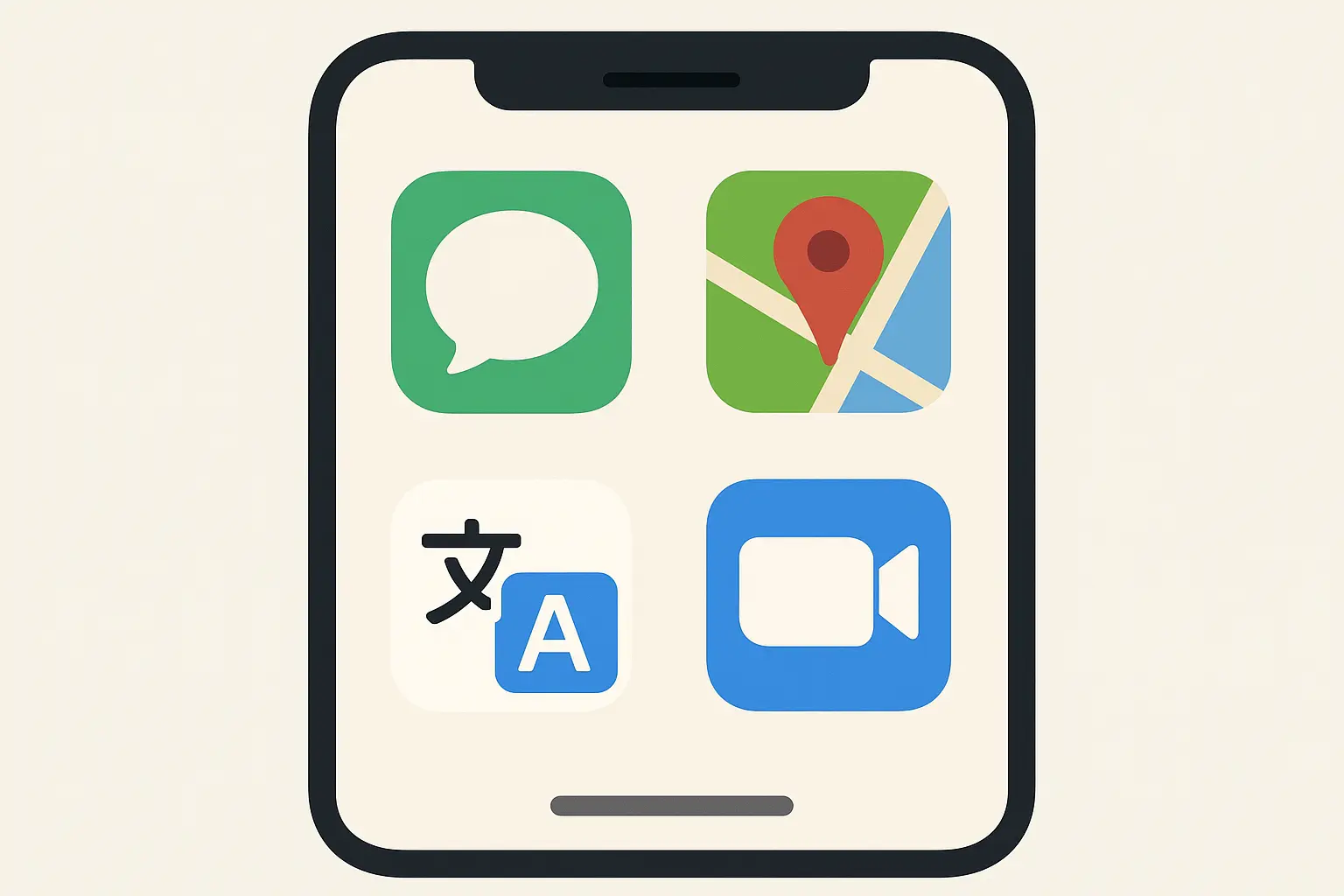
Planning for Different Destinations
Not all destinations are created equal when it comes to phone security and regulations. Do your homework before you go.
Research Your Destination
Some countries have strict rules about what you can photograph, what apps you can use, or what content you can have on your device. Find this out before you land, not when security is going through your phone at customs.
What to research:
Photography and recording restrictions
Prohibited apps or content
Data privacy laws and enforcement
Surveillance and monitoring practices
Embassy security briefings and travel advisories give you current information that tourist guides might miss. Recent traveler reports and security forums often have more up-to-date info than official sources.
Documentation needs:
Proof of ownership for expensive electronics
Understanding of import duties and restrictions
Emergency contact information
Local customs and etiquette around technology use
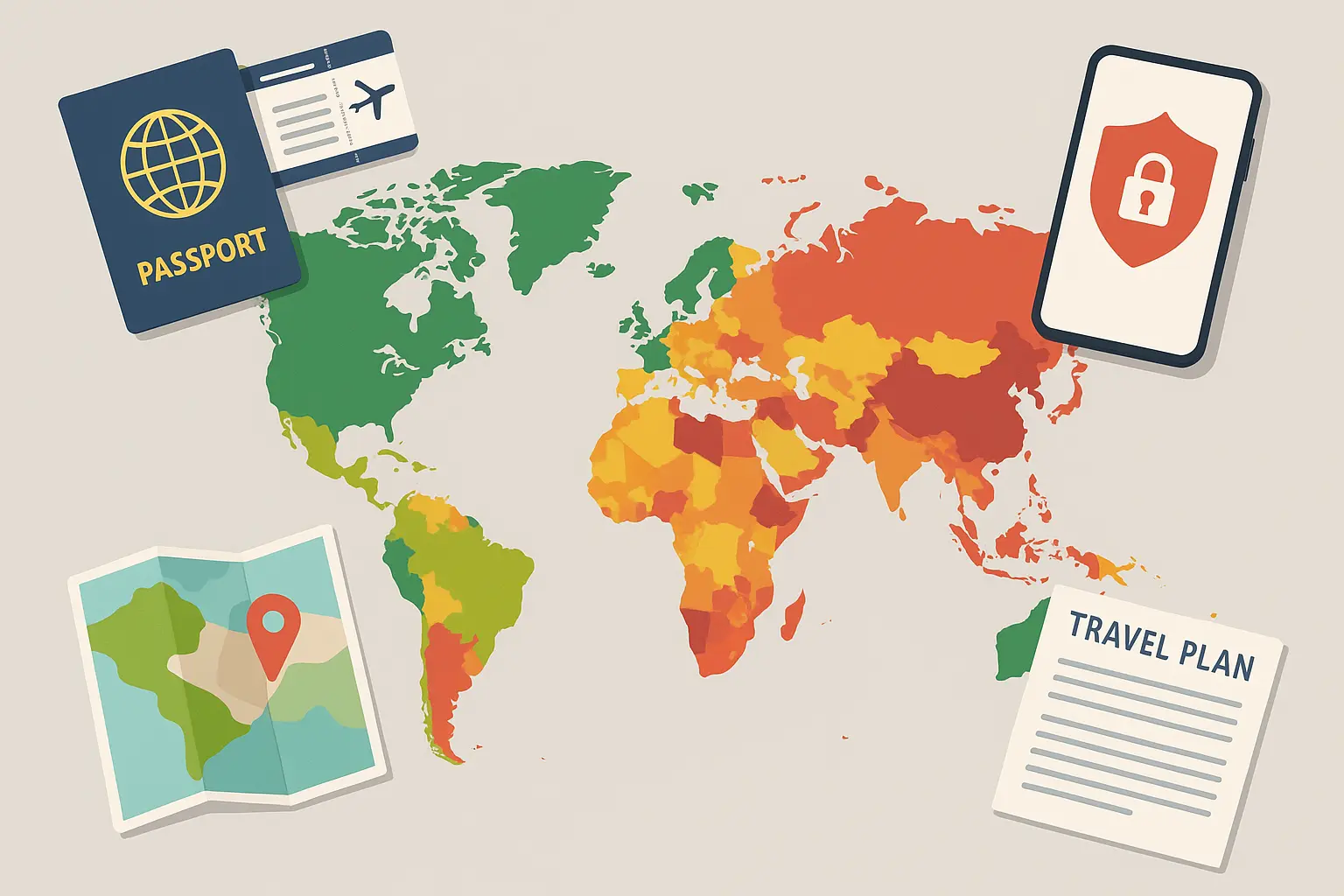
High-Risk Areas
Some destinations require extra precautions due to higher crime rates, political situations, or infrastructure problems. Plan accordingly.
Identify secure accommodation and transportation options. Sometimes paying extra for better security is worth every penny. Plan communication blackout protocols if necessary - some situations require complete digital silence for safety or legal reasons.
Consider local SIM cards for additional privacy when needed, and understand the local emergency services and how to contact them.
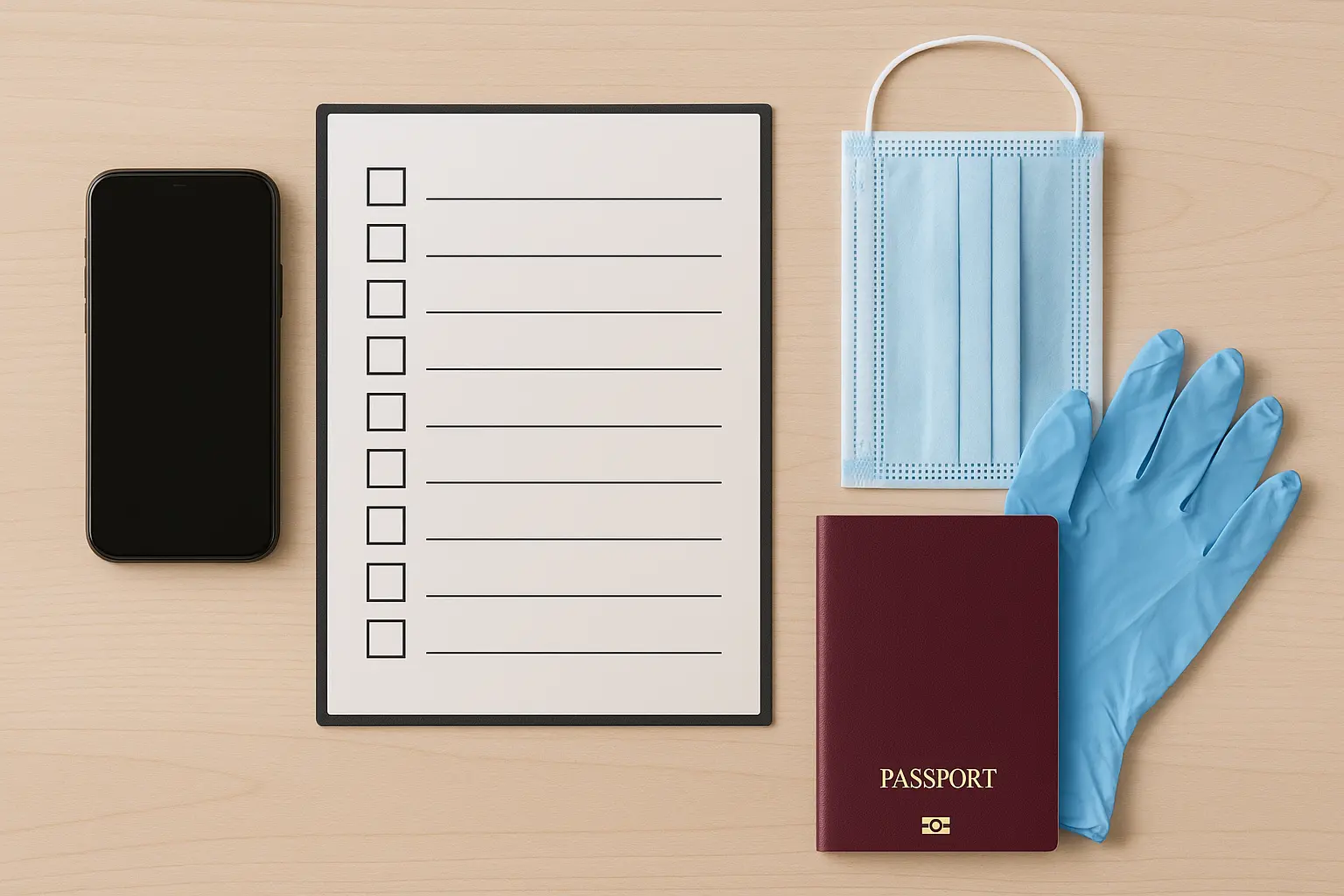
The Bottom Line
Look, your phone's going to be your lifeline when you travel. Spend 30 minutes now getting proper protection and setting up your security, or spend days dealing with a broken, stolen, or compromised phone in a foreign country. Your call.
The strategies in this guide work together - physical protection prevents damage, digital security keeps your data safe, and backup plans ensure you're never completely stranded. You don't need to implement everything, but covering the basics will save you major headaches down the road.
Start with the fundamentals: get a case that can survive real drops, set up a VPN, pack backup power, and research your destination's specific requirements. Test your backup systems before you need them, and remember that perfect security doesn't exist - but good preparation prevents most problems.
Your future traveling self will thank you for taking these precautions. Trust me on this

